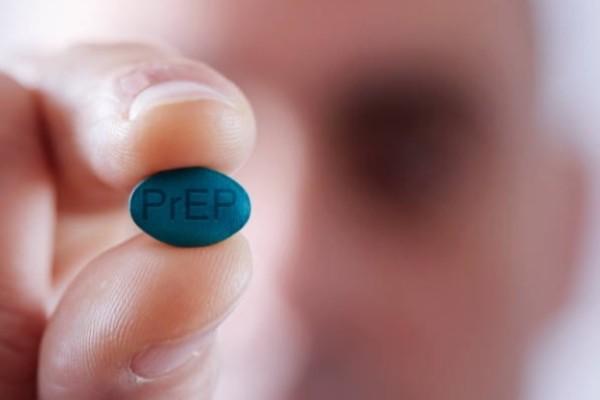
For Teachers & Professionals
Parkinson’s disease and Sexuality
Parkinson's disease (PD) is the second most common neurodegenerative disorder (observed only less than Alzheimer's disease), which is a progressive disorder that affects the nervous system and the parts of the body controlled by the nerves. Symptoms start slowly. The first symptom may be a barely noticeable tremor in just one hand. Tremors are common, but the disorder may also cause stiffness or slowing of movement. Symptoms often begin on one side of the body and usually remain worse on that side, even after symptoms begin to affect the limbs on both sides. The Global Burden of Disease (GBD) study reported that incident cases of PD were 1.02 million in 2017.
Parkinson’s disease has a huge impact on quality of life and in this category falls sexuality. The disease has a profound and widespread negative impact on patients’ sexuality and sexual relationship as can be seen in the widespread sexual and social dysfunction which mostly increased after the diagnosis of PD was made. While many sexual domains are impaired in both men and women, gender-specific effects can be seen as men are more likely to experience dysfunctional orgasms, fear of sexual malfunction, avoidance of sex, withdrawal from relationships, thoughts about divorce and dissatisfaction with sexuality and relationship due to PD.
According to some, there is a significantly higher prevalence of SD in men with PD compared with the general population. Men with PD have nearly a two-fold greater risk of SD compared with healthy persons. Patients receiving anti-parkinsonian drug therapy may also experience impairment in both libido and sexual response. Patients treated with dopamine replacement therapy often experience disordered impulse control, manifested by hypersexuality and compulsive sexual behaviour. Age and psychosocial stress might be other risk factors in the pathogenesis of sexual dysfunctions. Assessment of sexual function and initiation of appropriate therapy are important for patients, especially men, with PD in clinical practice.
How can neurologists or other physicians talk about sex? 1) Make the addressing of sexual and intimate issues routine. 2) Ask simple, sexually related questions, listen, and respond in an empathic and nonjudgmental way. This can have a noteworthy therapeutic effect. 3) Use open sexual communication to initiate a “sex talk.” Patients will appreciate you for introducing this delicate topic. 4) Don't discriminate: Talk with older patients and with the other sex, too. The need to feel loved, be touched, be intimate physically and emotionally, and feel sexually alive does not vanish due to ageing or disease. 5) If you fear that the sexual problem will not be well treated, remember that many problems in Parkinson's disease (PD), including sexual problems, cannot be cured. The goal of sexual rehabilitation is not resuming full genital functions but, rather, achieving pleasure and satisfaction, reducing anxiety and concerns, increasing intimate couple communication, and decreasing relationship tension. 6) Multiple underlying factors affect sexuality and intimacy in PD and should be taken into account: motor dysfunction (such as rigidity, tremor, immobility in bed, or difficulty in fine finger movement) may impair intimate touching needed for sexual pleasuring and arousal; nonmotor dysfunction (e.g., depression and anxiety) may reduce desire and arousal; sleep disturbances may lead to bed separation, thus decreasing opportunities for intimate contact; and fear of urinary incontinence may inhibit arousal and orgasm; drugs may induce sexual dysfunction (SD), antidepressants may negatively affect desire, arousal, and erectile function and result in delayed orgasm and ejaculation; spouse sexual problems may be related to the patient's SD, and vice versa. 7) Information and education are valuable even in cases when SD cannot be solved. 8) Refer to specialists in sexual medicine, sex therapy, and couple therapy whenever needed. Sexual issues can be handled better with multidisciplinary team cooperation. When time is limited or the physician is inexperienced (particularly in dealing with the sexuality of older people), referral to a specialist is appropriate. 9) Raise sexual issues in journal club and case discussions. It is important to stress that no one needs to be an expert in sexual medicine to provide meaningful care. Being aware of the sexual aspects of PD, inquiring about sexual changes and problems, providing proper information and explanations to reduce anxiety, and then prescribing appropriate medication or referring to experts is exactly what most patients and their partners need. They need recognition of their basic right to remain human sexual beings despite their progressive disease.
REFERENCES: Bronner, G. and Korczyn, A.D. (2018), The Role of Sex Therapy in the Management of Patients with Parkinson's Disease. Mov Disord Clin Pract, 5: 6-13. https://doi.org/10.1002/mdc3.12561
Buhmann, C., Dogac, S., Vettorazzi, E. et al. The impact of Parkinson disease on patients’ sexuality and relationship. J Neural Transm. 124, 983–996 (2017). https://doi.org/10.1007/s00702-016-1649-8
Ou Z, Pan J, Tang S, Duan D, Yu D, Nong H and Wang Z (2021) Global Trends in the Incidence, Prevalence, and Years Lived With Disability of Parkinson’s Disease in 204 Countries/Territories From 1990 to 2019. Front. Public Health 9:776847. doi: 10.3389/fpubh.2021.776847
Zhao, S., Wang, J., Xie, Q., Luo, L., Zhu, Z., Liu, Y., ... & Zhao, Z. (2019). Parkinson’s disease is associated with risk of sexual dysfunction in men but not in women: a systematic review and meta-analysis. The Journal of Sexual Medicine, 16(3), 434-446.
Share the knowledge!
More For Teachers & Professionals Q&A

Early Pregnancy Loss and Emotional Counselling with a Patient-Centred Perspective

Plastic Surgery and Discussion on Sexuality

Irritable Bowel Syndrome and Sexuality

Communication Strategies for Discussing PrEP

Addressing Young Women's Sexual Health in a Non-Judgmental Way

6 Topics that are not usually covered in Sexual education
This is a website that WE are building together. If you have a question there is no answer to on this site, send it here!
